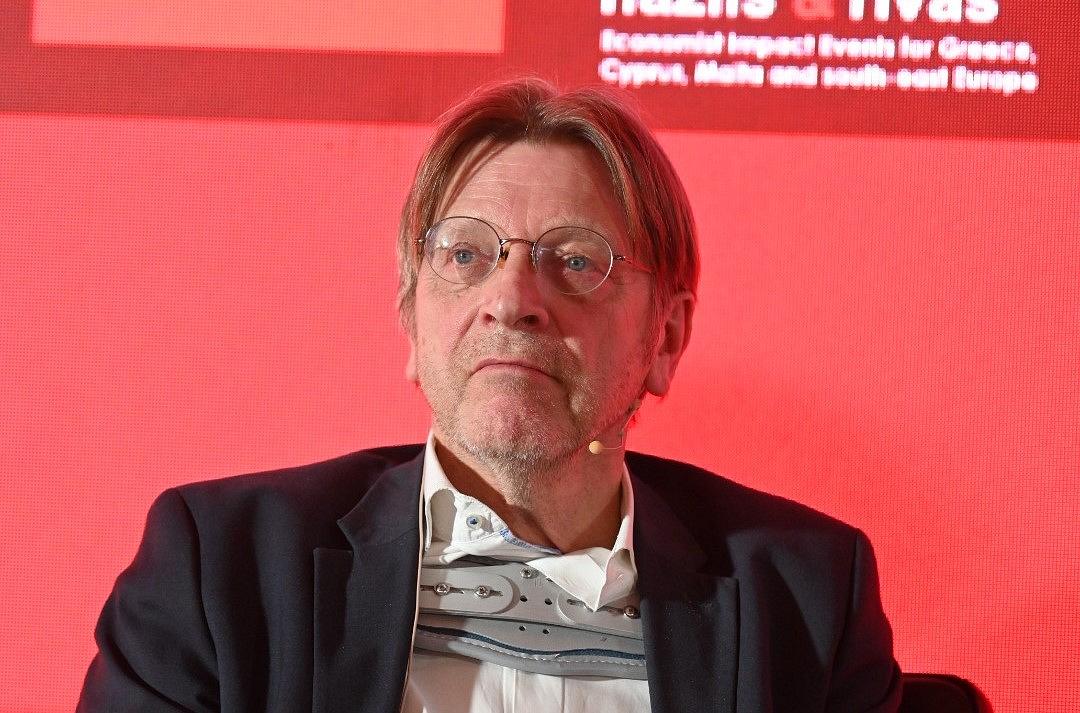EU membership made Romania better, former Renew leader Guy Verhofstadt says



During the interview, he argued that EU membership changed Romania for the good, but noted that the world’s democracies are currently facing a poly-crisis. He also talked about Russian imperialism and the challenges of the coming period.
Romania Insider: You said previously that the first time you came to Romania was in December 1989. What are some of the differences that are most striking to you now?
Guy Verhofstadt: There is no comparison possible. First of all, the trip was different. It was with a TAROM flight, and it was incredible. There was no legroom. Today it was with Wizz Air, a private, low-cost company, so already coming here was a difference.
When I came here for the first time, in Bucharest, I could not believe my eyes. It was the first time for me behind the Iron Curtain. There was that crazy palace [People’s Palace], and that whole avenue going to the palace, where you have those buildings, but behind those, there was nothing, there were slums. The man whom I visited was Radu Câmpeanu, the historical leader of the PNL, who was sitting in a big office that had nothing in it. There was just one little table, and there was the old leader of the party.
I think, for me, it was a very symbolic visit. And I came back several times since that first visit. Now, just before landing, I saw a new motorway that they were building. That’s one of the differences. The only thing that continues to be awful is that palace, but that will not change, I think, in the near future. You also see, I believe, that a free market economy, liberal democracy, and belonging to the European Union, have changed Romania for the good, and certainly not for the bad.
RI: The latest projections have all center parties in the European Parliament losing MEPs in the coming European elections. The Greens will lose 22 MEPs, the Social Democrats 19, Renew 21 MEPs, and the EPP (European People’s Party) will gain only two. Meanwhile, the ECR (European Conservatives and Reformists) gains 19, and the Identity & Democracy group gains 9. Why do you think that is?
GV: I think there is a general problem in American and European politics of rising populism because of the discontent that exists in society. And the discontent that exists in society is used and abused by populists, not that they have any solutions. They try to increase this discontent. And the discontent is mainly, in my opinion, a consequence of a polycrisis that we have. It is not one crisis, it is a crisis of migration, inequality, and also what people perceive as oppressive policies, first in health and now in green policies. This perception is then pushed forward by social media to a degree that didn't exist in the past. Everyone can see how algorithms are making citizens become more irrational.
There is also a lack of vision on the part of the political leadership. Then populists do what they always do, try to capitalize on this discontent on both sides of the Atlantic. So we have a poly-crisis, the effects of social media, and a leadership that is not capable of responding to what is happening, not capable of giving hope.
What we feel in our society in Europe and America is what I call declinism. People feel that their children will not have the same level of wealth or the future that they had, so the feeling is driving this sentiment against centrist political actors and leaders. If we don’t have a global vision that gives direction to the people, this declinism only gets bigger and bigger.
RI: Looking at Romania, all of the MEPs voted in 2019 went to the EPP, the Social Democrats, or Renew. Now we are set, for the first time, to enlarge the ECR group.
GV: Depends a little bit on what they think about Russia. Because yes, it's true that if you think badly of Russia in the ECR, [they tend to not approve of you]. This is also one of the reasons why they will never be a big group. Because of their loyalty to the old master.
RI: You have said that Putin has been at war with the West for 10 years and that if he wins in Ukraine, Europe is next. Would it not be fair to say that Eastern Europe is next? Putin will not march to Paris.
GV: That’s also the European Union. But it is true, yes. The next will be maybe the Baltic states. Look to your history, our history, the common history. With the Baltics and the partition of Poland, with Romania. It's not so difficult to see what will be, because there is Russian imperialism that exists. We thought it disappeared with the end of the Soviet Union, but it came back at the beginning of the 2000s, and it is larger than the question of Russia. It is a general fight between autocracy and democracy. But most people, I think, over 90%, will prefer to live in a democracy if they are given the choice.
The centrist leader, now 71, is not standing for reelection in the coming European elections. His upcoming book, The Future of Politics, however, will seek to draw a path for the way politics is done in Europe.
This interview was conducted at the Economist Impact's Fourth Romanian Business & Investment Roundtable in Bucharest.
(Photo source: Economist Impact Events for Greece, Cyprus, Malta and southeast Europe on Facebook)